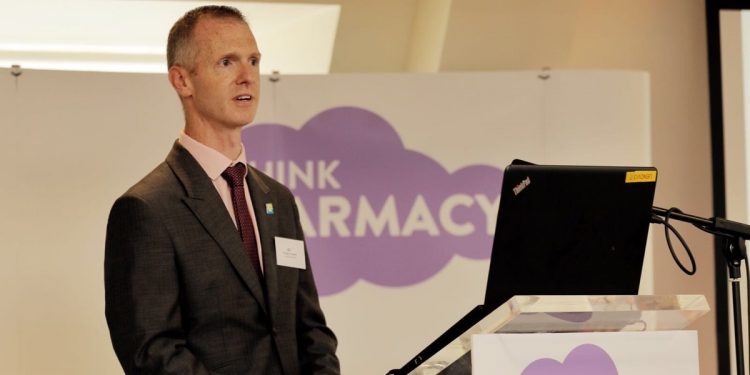Pharmacists have said the government must engage with them if it is serious about reducing the number of unplanned pregnancies.
General Secretary of the Irish Pharmacy Union (IPU) Darragh O’Loughlin said this year’s vote to allow the Oireachtas to legislate for termination of pregnancy would have ongoing implications for pharmacists.
The IP has already made a submission to Health Minister Simon Harris stating that there is no clinical reason why women should need a prescription before they can obtain the contraceptive pill or patch. This has been backed by Fianna Fail.
Mr O’Loughlin said: “The prevention of unplanned pregnancies will form a key part of the Government’s strategy, with plans for a free contraception service for all women already announced.
“Some years ago, the Health Service Executive carried out the Irish Contraception and Crisis Pregnancy Study 2010, which found that nearly half of the women surveyed (47 per cent) would prefer to get their contraception from a pharmacy and that 15 per cent of women and 9 per cent of men experienced difficulty in accessing contraception. Barriers to access included locality, cost and embarrassment.
“According to the study, difficulty in accessing contraception remains an important issue and the authors suggested that ‘more readily available access to affordable contraception would increase the use of contraception’. The study recommended that “strategies that facilitate choice in accessing contraception should be implemented” and that ‘the role of community pharmacists in the provision of sexual health advice and services needs to be further developed’.”
Mr O’Loughlin continued: “The supply of hormonal contraception under protocol without prescription by a specially trained pharmacist is becoming increasingly accepted worldwide. In Ireland, we have a de facto version of this service when a woman uses an online doctor to renew her prescription, as the online doctor is essentially an algorithm, with the blood pressure and BMI checks being carried out by the pharmacy.
“Last year, the New Zealand ministry of health medicine classifications committee recommended reclassification of certain oral contraceptives from “prescription” to “restricted” medicines, saying that they were satisfied that “pharmacists can supply oral contraceptives to women who meet the specified criteria with the same levels of safety as other healthcare professionals”.
“In several states of the USA, women can now access contraception directly from a pharmacist without a prescription. Women seeking contraception answer a health questionnaire at the pharmacy and get their blood pressure checked. If there are no problems identified, then they can get a contraceptive prescription. Questions asked include inquiries into chronic diseases, smoking habits, current and past use of different types of contraceptives, and blood clot history.”
He added: “In a study conducted by researchers from the University of Washington, which measured the effectiveness of pharmacists’ counselling and interview processes, 70 per cent of women reported continuing use of their prescribed birth control. Both women and pharmacists reported satisfaction with the experience, and nearly all study respondents said they’d be willing to continue seeing pharmacist prescribers for contraception and other services.
“It isn’t only pharmacists and women’s rights activists who advocate for better access; expert medical organisations do too. The American Academy of Family Physicians supports access to contraception without prescription. It says oral contraceptives are safe and effective and that women correctly self-identify contraindications. Also, the American College of Obstetricians and Gynecologists has said that oral contraceptives should be available without prescription, that women can self-screen for contraindications, and that cervical cancer/STI screening are not medically required to safely provide contraception.
“If the Government is serious about reducing unplanned pregnancies by improving access to contraception, then the Minister must engage with us on our proposal. Things have moved on since a condom required a prescription. Now it’s time we made more progress on contraception and caught up with the rest of the world.”










